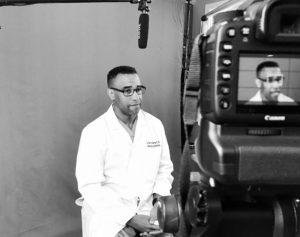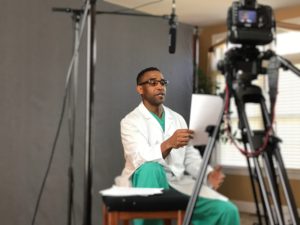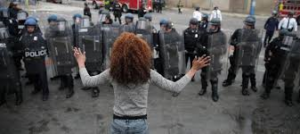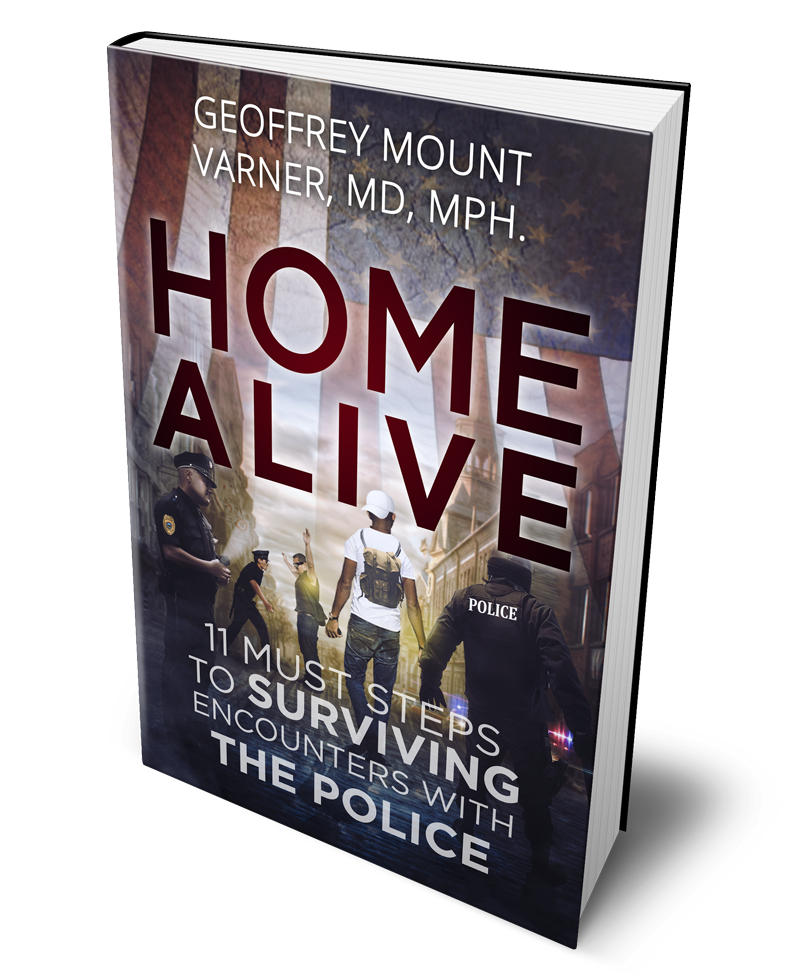Questions discussed and asked while speaking at the American Psychiatric Symposium.
1. Why is such a book needed? The book is needed because the Unites States has more police killings of citizens than any other industrialized country in the world and up to 15 – 20 % of those had mental health issues. I get it, the police want to make it home alive and often their motto is, “I would rather be judged by 12 than carried by 6.” Police first want to feel safe and then respected. If the police feel threatened, they are trained to react with a force that is greater than the perceived threat. There are 3.4 citizens killed by the police each day. There are even significantly more citizens who are injured by the police each day. So, if citizens can calm themselves and slow things even before the stop and during the interaction then there is a greater likelihood that officers will feel less threatened and have more time to react in non-life-threatening situations.
2. What do you say to law enforcement members who may criticize you for making people fearful of the police? I would say that they have not read the book. I would encourage them to develop thicker skin. There is no industry where it is all or nothing. Meaning, just because you speak to truth and to power, it does not mean that you do not support the police. Fear is not always a bad thing. If fear motivates people to behave in a certain manner until the officers clearly feel safe and assess that there is not an imminent threat than give me fear every day. It is about saving lives, not about anything else. Also, I would inform the critics about the new proven and verifiable data. It is not innuendo or maybe, it is factual, black males are 9 times more likely to be killed by the police than their white peers. Black males ages 14 – 32 should fear the police, and white males 40- 50 should fear the police too. These age groups are being killed at alarming rates.

3. What would you say in response to African-American activists who may feel you are silencing their narratives in police-citizen relations? Where do you think the tension stems from? I would say that their narrative exists within my book. My book does not change any group’s activism. In fact, it is because of the book that their activism can exist and flourish. Let’s be clear, from my perspective, a traffic or police stop is not the time for activism. It is the time to change your focus and go into survival mode. It is the time to figure out how to make it home alive and unharmed. You know what they call a dead activist? Dead! You know what they call the parents of a dead activist? A person experiencing a pain worse than death. It is an inconsolable pain. A pain so deep that their heart literally hurts.
- What are some of the 11 tips and strategies shared in your book that, if followed, could greatly reduce the chances of an unnecessary altercation with the police?
“When pulled over, everyone in the car is pulled over”
-
- It is not just the driver who the police are concerned about. They are concerned about everyone and anyone in the car who can harm them. Your friend in the back must be focused on the goal too.
- Know who is in the car with you. Set clear expectations about expected behavior when pulled over.
“Don’t run”
-
- When you run, your “flight or fight response” is heightened. Your adrenaline (epinephrine and norepinephrine) increases. You are amped. But there is also a stress hormone, cortisol that increases as well. Increased amounts of cortisol clouds judgment.
- Hence, you have the assailant and the police with increased cortisol and likely clouded judgement running to an area that is often outside the public domain.
4. One of your suggestions is for civilians to cry or fake cry. Why? The goal of crying is to try to create a human pause. Crying is often associated with someone in pain or in need of help. Crying creates feelings in the person crying, as well as the people seeing the crying. Crying gives the officer a moment to see you as a person in need of help. The goal of crying is slow things down. It gives the officer more time to give you the benefit of the doubt. The book is a very transformative book and requires critical thinking. It is important to keep in mind that the basic point of the book is to make it home alive at all costs. Survive the encounter with the police and fight later in court.
5. You also make a good point that when you are pulled over by the police, everyone in the car is pulled over. One of the things you suggest is using a cell phone to record the conversation with the police. What should a driver tell his/her passengers to do or not do? View this book as a survival kit. If the stop is going well and no one feels threatened, you are on the safe side of the interaction. But if the stop is not going well and it is escalating, you have to decide what tools to deploy. Although the Supreme Court has been very clear about the right of a citizens to record, you do not want to do anything to antagonize the situation. I would consider recording until the officer tells you to stop. And if he tells you to stop, put it down but DO NOT turn it off.
6. How can law enforcement be better trained to help civilians understand the type of behavior that’s required of civilians when they are approached by the police? I think law enforcement spends 90% of their time dealing with the bad 5% of the population that they serve. This inherently and implicitly creates a bias. I recommend law enforcement spend more time with the other 95% of the citizens that they serve. If law enforcement really wants to understand the civilians of the population that they serve, they should utilize the local barbershop or beauty shop in that area, coach a team in the community they serve, attend community events, and go to the schools for reasons other than discipline. Finally, law enforcement officers should be trained on being super trainers. Officers should be going to schools and community events and teaching citizens how to interact with police officers.
Finally, for those of use with young people- especially black males and other loved ones what is the best immediate advice that we can give them today to save their life?
- The main goal during the stop is to survive the encounter.
- You must make the officer feel safe during the stop. The safer the officer feels, chances are the safer you are too.
- Promise them that no matter what happens during the encounter, if you can just get them home you can help fix them or it. But if there is no fixing the dead. In other words, survive today so that we can thrive tomorrow.

Please comment below and subscribe!:



Comments are closed.